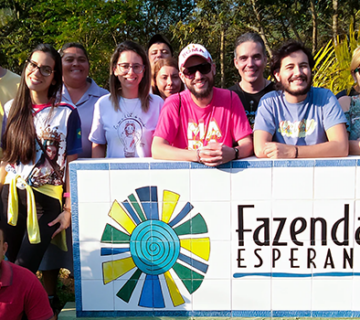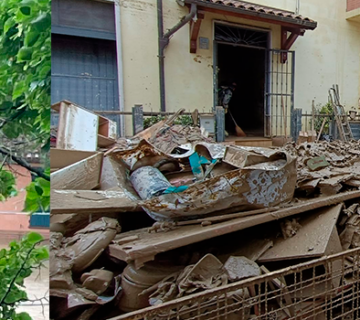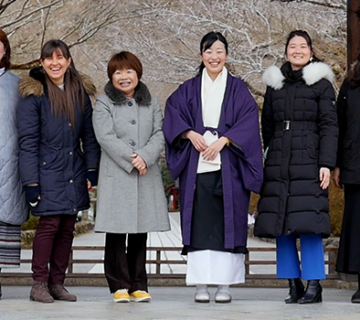 Ruski Krstur (Voivodina) is a small town of about 4000 inhabitants, in the heart of the Ruthene ethnic minority in Serbia. It is an agricultural region, impoverished by war. As government subsidies have been withdrawn, emigration has grown hugely, particularly to Canada. In this place, however, a group of young people had no wish to leave their village. With great commitment they struggled, and managed, to build a future for themselves and for many others. This is their story.
Ruski Krstur (Voivodina) is a small town of about 4000 inhabitants, in the heart of the Ruthene ethnic minority in Serbia. It is an agricultural region, impoverished by war. As government subsidies have been withdrawn, emigration has grown hugely, particularly to Canada. In this place, however, a group of young people had no wish to leave their village. With great commitment they struggled, and managed, to build a future for themselves and for many others. This is their story.
In the 90s two entrepreneurs, Slavko Rac and Janko Katona (who were already in business) decided to open an ice cream kiosk. They were successful and opened a second kiosk in another town, giving work to six other young people. But things did not stop there. An agricultural firm, called Juarbis, was set up and it grew rapidly as a result of State development investment. By 2008 it had 40 employees and was the leading business of its kind in the region.
‘But we hit problems again,’ said Marija Majher, the current director of Juarbis, ‘and in 2009, with a drop in milk production, the firm lost the largest part of its income. It was a tough blow. Nonetheless, we really get on well with another in our group. We’ve been working together for 10 years and we were determined to get through this together. In the last few years we have tried to keep the lines of communication open with our 500 contacts, who supply us with milk and agricultural produce. The inspiration for our business model is the ‘art of loving’, which is rooted in the Gospel, as proposed by Chiara Lubich. It has meant that we have built profound, living relationships with others.’
Building upon Chiara’s intuition about sharing the business’s profits three ways, apart from creating new jobs, the firm has promoted the ‘culture of giving’ and communion. This has given rise to educational and cultural initiatives in the town and last, but not least, there have been direct interventions in emergency situations, giving practical help and setting up development projects.
‘To our surprise,’ Marija Majher went on to say, ‘two of us were elected with large majorities in the local elections. This has been an opportunity to do something more for our people, whose poverty and suffering we know personally so well.
It has led us, once again, to Chiara’s experience in Trent after World War 2, where she was trying to solve the social problems of the city, beginning with the destitute and drawing in the whole of the community. In a similar way our three firms, and some of our friends from the local Caritas, are trying to sponsor activities all over the town, such as ecological projects or collecting wood to heat the homes of people who are sick or elderly. These very people, those who are sick or elderly, have taken part in weekly get-togethers for conversation and entertainment, and we try to help them in other ways, for instance, taking them to medical appointments. A project that as yet is still a dream is to use the expanses of abandoned land around many of their houses to build a care home that truly meets their needs. We have also taken children and young people into consideration by running workshops for journalism, acting, cookery, decoration. These are extremely animated with games and parties. The family is always at the core of our activity, and we have done some special projects for some whose houses have suffered as a result of fire, and for others we have paid for their electricity and, for one particularly large family, we bought a washing machine. The ‘Family for Family’ project was proposed to the entire local community, as a way of putting our strengths and our capacities at thedisposal of others, so that we can help one another mutually.’


 Italiano
Italiano Español
Español Français
Français Português
Português



No comment